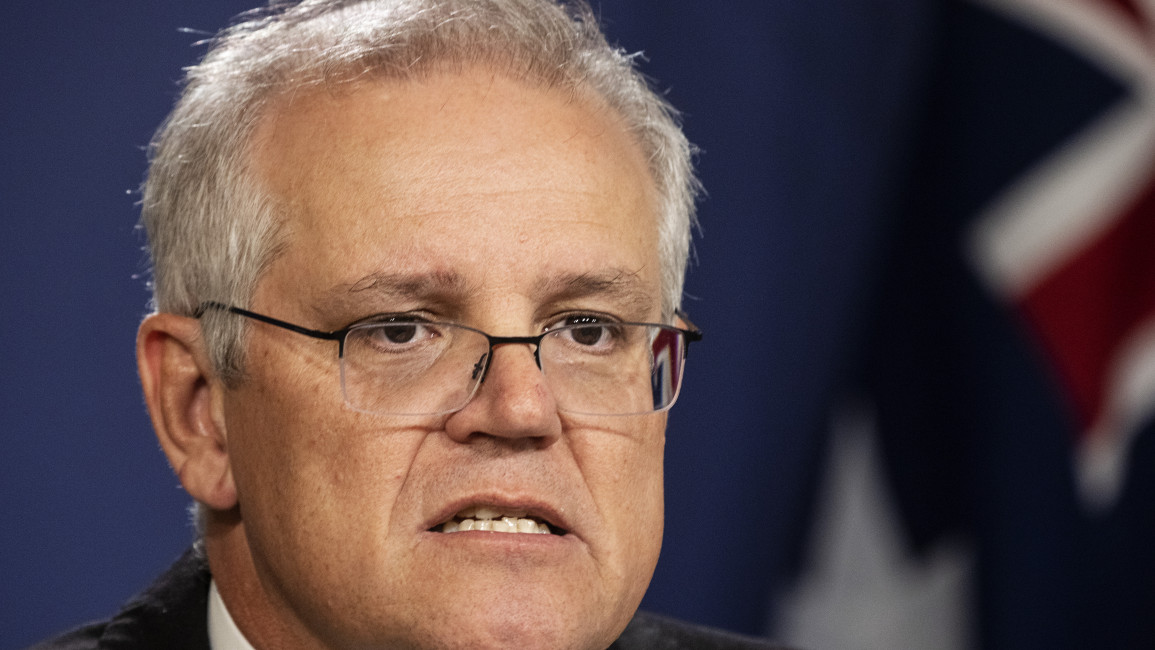Australia to close embassy in Afghanistan over security fears
Australia on Tuesday abruptly announced it will shutter its embassy in Afghanistan this week, expressing fears over the "increasingly uncertain security environment" in Kabul as foreign troops withdraw.
Australian Prime Minister Scott Morrison said the facility would close as an "interim measure" on May 28 - in just three days - "in light of the imminent international military withdrawal from Afghanistan".
The United States and allied forces are in the final stages of withdrawing their remaining troops from Afghanistan, ending America's longest-ever war, but heralding an uncertain future for a nation in the tightening grip of Taliban militants.
Around 80 Australian troops are also leaving, and without that small contingent and the larger US force as back-up, Morrison said there was an "increasingly uncertain security environment".
"The government has been advised that security arrangements could not be provided to support our ongoing diplomatic presence," he said in a statement.
The elected government in Kabul and Afghan security services remain fragile despite two decades of foreign capacity building, and their success is far from clear without continued US military support.
Western diplomats and military officials have been scrambling to work out how to provide security for their future civilian presence in Afghanistan with fears growing of a Taliban comeback.
#BREAKING The Federal Government confirms the @australian story overnight that the embassy in Kabul will close. "DFAT officials will visit Afghanistan regularly from a residential Post elsewhere in the region" @SBSNews pic.twitter.com/8k8y0LvjNW
— Anna Henderson (@annajhenderson) May 25, 2021
"The only incentive for foreign embassies to remain is the humanitarian work that they are involved in, but if their personnel are endangered then there is no point in remaining here," a foreign defence official based in Kabul told AFP.
"Several other embassies will follow Australia in the coming weeks or months."
Nishank Motwani, an Afghanistan specialist based in Australia, said the Taliban would interpret Morrison's announcement as a victory.
"The Taliban will see it as... a clear sign that other NATO and non-NATO partner countries are likely to shutter their diplomatic missions because of the US's decision to exit Afghanistan and the security vacuum its departure will inevitably create," he told AFP.
In recent weeks, violence in the country has soared and Afghan forces have clashed with Taliban fighters not far to the east and west of Kabul.
President Joe Biden has said all American troops will leave by September 11, the 20th anniversary of the Al-Qaeda attacks that sparked the US-led invasion of Afghanistan that toppled the Taliban.
Read also: Islamic State remains 'potent' force in Afghanistan, says US envoy
It was not clear whether there was a specific threat made against the Australian embassy, which is located in the heavily fortified Green Zone, not far from the US mission.
Afghanistan's foreign ministry said it hoped Australia would review its decision, adding it was committed to offering security to diplomatic missions.
Key among the concerns of foreign embassies is making sure Kabul airport - the exit route for Western diplomats and humanitarian workers if security breaks down - can function securely.
The sudden closure of the Australian embassy surprised some experts.
"It is not set in stone that this is going to be a Taliban roll-up in the next few weeks," said John Blaxland, Professor of International Security at the Australian National University.
"This is not Saigon 1975," he added, a reference to the dramatic helicopter evacuation from the roof of the US embassy in South Vietnam as the Viet Cong and regular communist military forces seized the city.
Australia's two-decade presence in Afghanistan was not without scandal.
A years-long Australian military inquiry recently reported evidence that elite special forces "unlawfully killed" 39 Afghan civilians and prisoners during the war.
A special war crimes prosecutor has been appointed to further investigate atrocities including summary executions and "body count competitions" and bring those responsible to justice.



